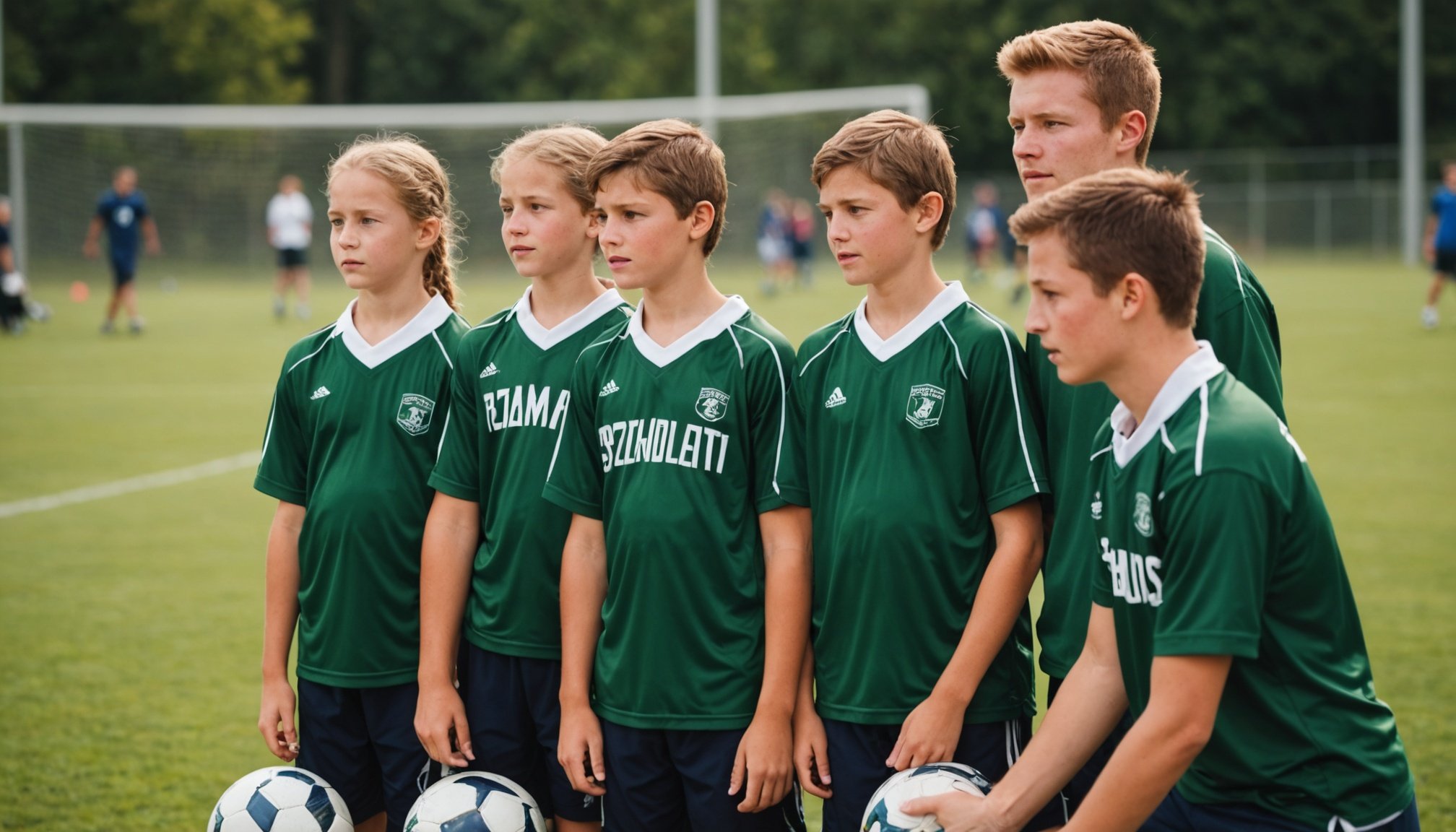In today’s fast-paced world, the importance of physical activity cannot be overstated, especially for young athletes. Participation in team sports offers a unique blend of physical, social, and mental benefits that contribute significantly to the overall well-being of children and teenagers. In this article, we will delve into the various psychological advantages associated with engaging in team sports, drawing insights from recent studies published on platforms like Google Scholar and PubMed. This exploration aims to provide a comprehensive understanding of how team sports can foster a healthy mindset and enhance the development of youth.
The Role of Team Sports in Enhancing Mental Health
Engaging in team sports plays a crucial role in enhancing the mental health of young athletes. When children participate in organized sports, they are not only working towards physical fitness but also developing essential life skills. Sports such as soccer, basketball, or volleyball require communication, cooperation, and teamwork, which are foundational for building strong social relationships.
Have you seen this : Ride the waves: snowboard courses at les deux alpes
Research indicates that participation in sports can lead to lower levels of anxiety and depression among young people. A study published in PubMed found that children who engage in regular physical activity, particularly in a team setting, exhibit a significant decrease in symptoms of anxiety. This is likely due to the social support that comes from being part of a team, where members motivate each other and celebrate successes together.
Moreover, young athletes often develop a sense of belonging and identity through their teams, which can bolster self-esteem and confidence. Team sports create an environment where individuals feel valued and appreciated. This social aspect contributes to a positive self-image, helping young athletes navigate the challenges of adolescence with greater resilience.
Additional reading : How can sports-specific strength training enhance performance in sports like rugby or football?
In summary, the structured environment of team sports not only encourages physical activity but also provides a supportive framework that promotes better mental health outcomes for young athletes.
Building Social Skills through Team Participation
Participating in team sports fosters the development of critical social skills among young athletes. The dynamics of a sports team necessitate interaction, collaboration, and conflict resolution, which are essential skills for success in various areas of life.
When children engage in team activities, they learn how to communicate effectively with peers, listen actively, and express their thoughts and feelings. These interactions help them understand the importance of teamwork and the value of working towards a common goal. For instance, during a basketball game, players must constantly communicate their positions, strategies, and plays, reinforcing the importance of verbal and non-verbal communication in a team setting.
Furthermore, team sports provide an opportunity for young athletes to encounter and overcome challenges together. This can help them develop empathy and improve their ability to relate to others’ feelings and experiences. A study highlighted in Google Scholar emphasizes that athletes who regularly participate in team sports are more likely to develop strong relationships and social networks, which can be beneficial throughout their lives.
In addition, through team sports, young athletes learn how to handle winning and losing gracefully. They experience the highs of victory and the lessons that come with defeat, fostering emotional intelligence and resilience. This preparation for real-life scenarios is invaluable as they transition into adulthood. In conclusion, participation in team sports not only enhances physical fitness but also cultivates essential social skills that contribute to personal and professional success.
The Impact of Team Sports on Academic Performance
The relationship between team sports and academic performance is a topic of growing interest among educators and parents alike. Evidence suggests that young athletes who participate in sports tend to perform better academically compared to their non-athletic peers. This correlation can be attributed to several psychological and social factors that sports participation fosters.
Firstly, the discipline required in sports often translates into better time management and organizational skills. Young athletes learn to balance their commitments to practice, games, and schoolwork, which cultivates a strong work ethic. A study featured in PubMed indicates that students who are involved in sports tend to have higher grades and better attendance records. This is likely because they develop a routine that prioritizes academic responsibilities alongside their sporting commitments.
Moreover, the focus and concentration skills developed through sports can enhance a young athlete’s ability to perform academically. The mental rigor required during games—such as strategic thinking, decision-making, and focus during high-pressure situations—can sharpen cognitive abilities. This cognitive enhancement can lead to improved problem-solving skills in the classroom, as young athletes apply the same level of focus to their studies.
Additionally, the social networks formed through sports can lead to increased academic engagement. Young athletes often collaborate with teammates on schoolwork and projects, fostering a culture of academic excellence. They motivate each other to strive for success, both on the field and in the classroom. In summary, the benefits of team sports extend beyond the playing field, positively influencing the academic performance and overall development of young athletes.
Developing Leadership Skills through Sports
Participating in team sports offers young athletes a unique platform to develop essential leadership skills. Being part of a team not only involves following directions but also encourages individuals to take initiative, make decisions, and inspire others. These attributes are integral to effective leadership, and sports provide a practical setting for their cultivation.
In a team environment, young athletes often find themselves in situations where they must step up, whether as a captain or by taking on a significant role during critical moments in a game. This experience fosters confidence and empowers them to voice their opinions and assert themselves in a team setting. Leadership in sports extends beyond just being vocal; it also involves leading by example—demonstrating commitment, hard work, and sportsmanship.
Furthermore, young athletes learn to motivate their teammates, a crucial aspect of leadership. They experience firsthand how encouragement and support can enhance team performance and cohesion. This ability to uplift others is a valuable skill that translates into academic and professional environments. A study from Google Scholar highlights that former young athletes often excel in leadership roles in their careers, attributing their success to the experiences gained during their formative years in sports.
In conclusion, participating in team sports not only provides physical benefits but also equips young athletes with critical leadership skills. These skills are vital in today’s world, where effective teamwork and leadership are paramount in various fields.
The psychological benefits of participating in team sports extend far beyond the physical realm. Young athletes gain invaluable social skills, improve their mental health, enhance academic performance, and develop strong leadership qualities. As parents, coaches, and educators, recognizing the profound impact of team sports can help us foster environments that encourage participation and support the holistic development of youth.
In an age where mental health issues among children and teenagers are increasingly prevalent, promoting activity in sports can serve as a powerful countermeasure. Understanding the correlation between team engagement and positive psychological outcomes can guide us in supporting our young athletes, ensuring they not only thrive in sports but also flourish in their everyday lives. As we continue to advocate for sports participation, it is crucial to highlight these benefits and work towards creating more opportunities for kids and young individuals to engage in these enriching experiences.











